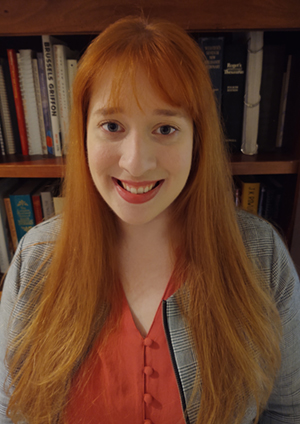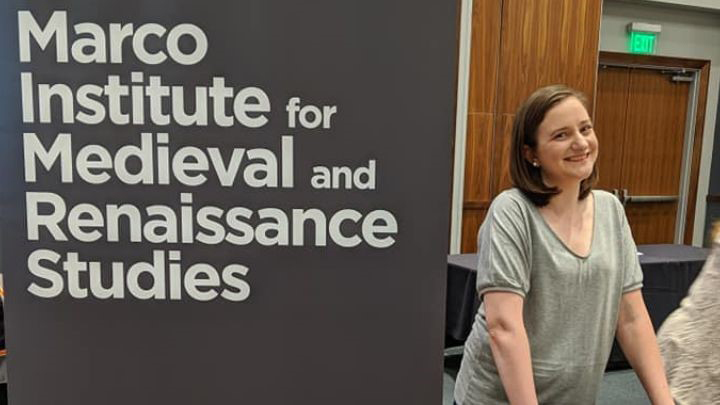
Alexandra Garnhart-Bushakra, a PhD candidate in history, received the Marco Institute’s 2019-2020 Jimmy and Dee Haslam Dissertation Fellowship. This support has allowed her to complete her dissertation, “If Life Were Verse: Classical Masculinity and Memories of Violence in First Crusade Narratives, 1095-1200 C.E.”
Her project explores how Northern French authors relied on ancient exemplars—including Homer’s Achilles, Virgil’s Aeneas, and the Roman love poems by Ovid—to redefine Frankish masculinity after the First Crusade. Within 20 years of the campaign, chroniclers began to re-imagine the narrative of events and added graphic descriptions of sexual trauma, death, grief, and vengeance to their histories. Whenever monks read, copied, and shared these highly edited accounts, they experienced the horrors and pleasures of crusading without leaving their monasteries.
In her dissertation, Alex argues that churchmen calibrated their words to thrill their Frankish audiences, relying on gendered imagery and emotions to make the pilgrimage to Jerusalem intelligible to others. Early crusade historians mastered evocative language and embraced, if not emulated, Roman poetry in order to guide their Christian readers away from Islam and towards salvation. Therefore, the theme of violence against bodies in the Holy Land transformed into a metaphor for the spiritual health of Latin Christendom.
Kelsey Blake, a PhD candidate in history, received the Marco Institute’s 2020-2021 Jimmy and Dee Haslam Dissertation Fellowship. This fellowship will support the research and writing of her dissertation, “The Experience of Illness, Healing, and the Body in the Carolingian World.” In this dissertation, Kelsey argues that examinations of historical medicine must consider medicine from a historical rather than a modern perspective. Her project considers the relics of saints alongside the medicus—the healer trained in classical humoral remedies—and the folk healer as a source of healing sought out in the early Middle Ages. She asks what it meant to have a body in the Carolingian world, what it meant for that body to become ill, to suffer, and to die. By challenging the traditional boundaries of the defined scholarly category of medicine, Kelsey’s dissertation, supervised by Matthew Gillis, seeks to illuminate the experience of healthcare and the body in the Carolingian world.
